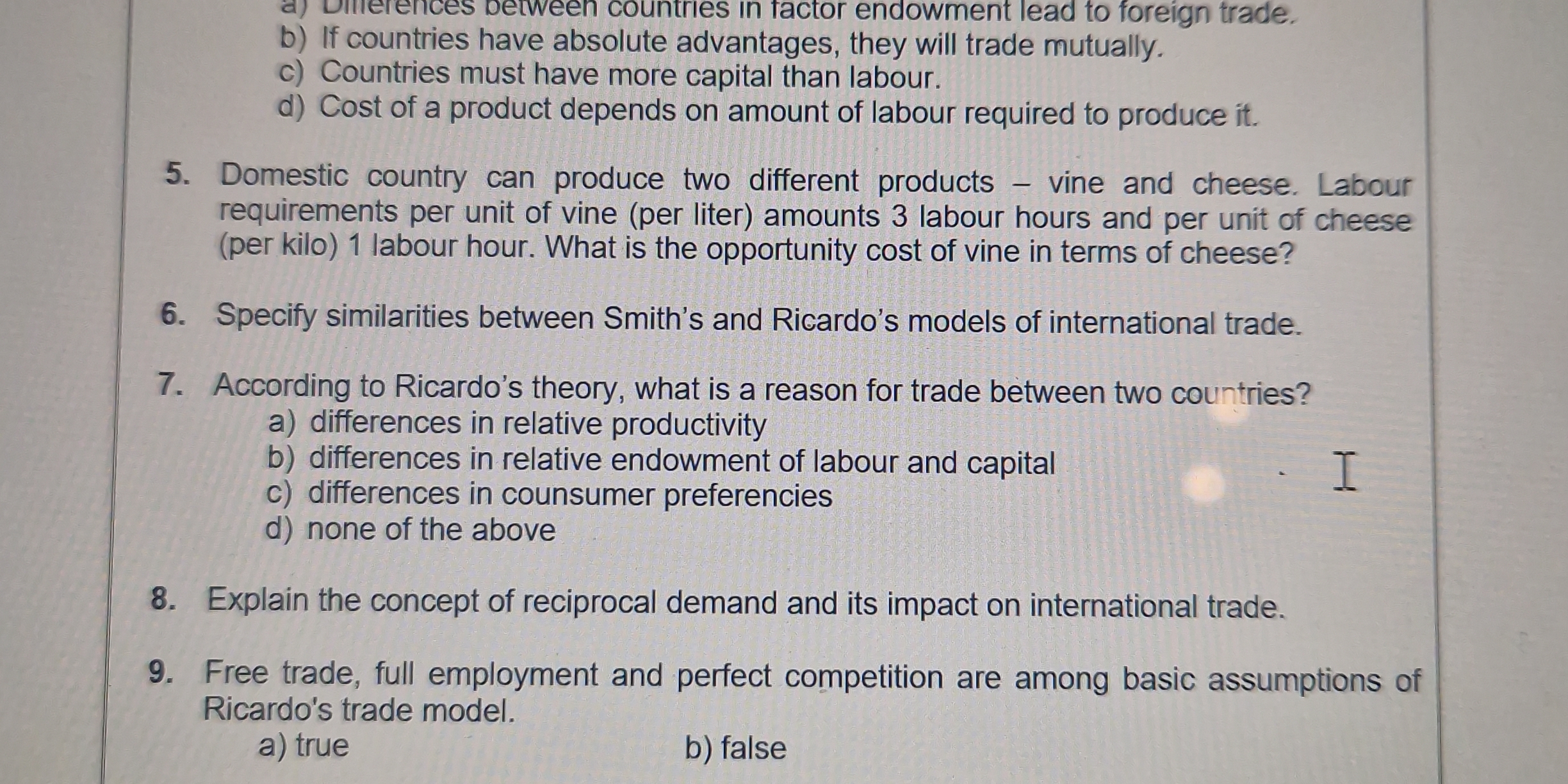Explain the concept of reciprocal demand and its impact on international trade.

Understand the Problem
The question is asking for an explanation of various concepts related to international trade, particularly comparing economic theories by Smith and Ricardo, determining the opportunity cost in production, and exploring fundamental assumptions in trade models.
Answer
Reciprocal demand affects the terms of trade by influencing the mutual demand of countries for each other's goods, impacting international trade dynamics.
Reciprocal demand refers to the mutual demand one country has for another's goods, determining the terms of trade. It influences international trade by setting the relative prices at which goods are exchanged. The intensity of this demand impacts how favorable trade terms are, encouraging negotiation and exchange efficiency.
Answer for screen readers
Reciprocal demand refers to the mutual demand one country has for another's goods, determining the terms of trade. It influences international trade by setting the relative prices at which goods are exchanged. The intensity of this demand impacts how favorable trade terms are, encouraging negotiation and exchange efficiency.
More Information
Reciprocal demand theory was developed by John Stuart Mill. It plays a crucial role in determining the terms at which trade is conducted between nations, highlighting the importance of each country's demand responsiveness.
Tips
Common mistakes include ignoring the role of mutual demand or assuming it has no effect on trade terms.
Sources
- Mills Theory of Reciprocal Demand - scribd.com
- Theory of Reciprocal Demand - Economics Discussion - economicsdiscussion.net
- Brief note on Reciprocal Demand - Studocu - studocu.com
AI-generated content may contain errors. Please verify critical information